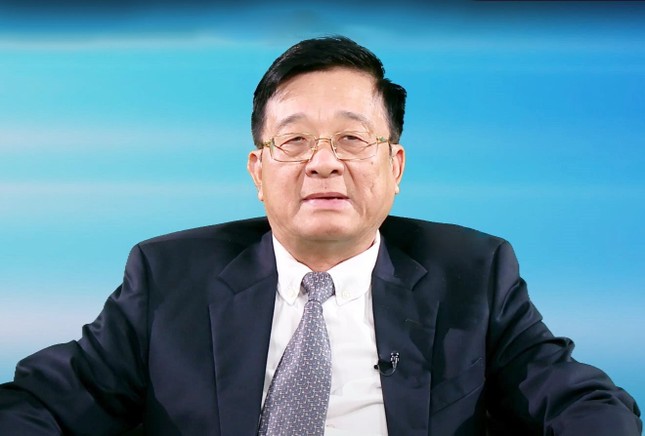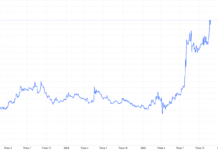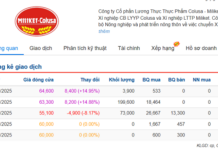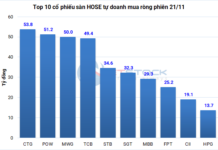In the Law on Credit Institutions (amended) recently passed on January 18, 2024, there are regulations to reduce the ownership ratio of banks to prevent cross-ownership. The issue is how to prevent cross-ownership while still ensuring the legitimate rights of shareholders.
At the seminar on the Law on Credit Institutions on February 3, Mr. Nguyen Quoc Hung – Vice Chairman cum Secretary General of the Vietnam Banks Association – assessed that reducing the ownership ratio is one of the regulations to prevent bank manipulation. This is a necessary content, how to reduce the ownership ratio that dominates credit institutions.
However, to reduce the ratio in a stable manner, the law also has provisions for transitional enforcement until the ratio is brought to the prescribed level. However, this is only one of the contents that minimizes dominance, alongside many other provisions.

Mr. Nguyen Quoc Hung – Vice Chairman cum Secretary General of the Vietnam Banks Association.
Lawyer Truong Thanh Duc – Director of ANVI Law Company – thinks: “To avoid gaps leading to risks in the banking industry, there are many factors. First is the ownership ratio, second is the lending ratio, and third is other management and administration. However, the reality is that there have been many cases and lessons, so it is necessary to tighten all stages”.
Furthermore, Duc also said that another aspect to be strictly controlled is the source of funds. In reality, there are still cases of stripping assets from banks. Especially, it is important that the Government also requires the enforcement of the law.
“But in reality, is there a situation where the ratio exceeds the prescribed limit or not? The new law has adjusted many different aspects, hoping that the regulations will have an impact on the reality and bring positive changes”, Lawyer Duc said.
Regarding the issue of shareholders owning over 1% of the capital of credit institutions having to disclose information, Mr. Nguyen Quoc Hung evaluated that this content is based on reality, many shareholders do not appear in the shareholder list but control over 90%, but there is no transparent information.
For everyone to see, these shareholders have real strength, unrestricted capital investment, but holding 1% of the charter capital of credit institutions, related personal information, and financial status must be disclosed, so that everyone knows that this is real capital, not someone who is on behalf of the shareholders, limiting dominance.
Lawyer Truong Thanh Duc proposed that instead of having to disclose information when the ownership ratio reaches 1%, it is necessary to publicly disclose the entire list of shareholders, only with transparency can supervision be truly implemented.
In order to be professional and sustainable, banks must ensure, even the lowest lending rates must meet standards, ensuring safety. Secondly, inspection and supervision must be strengthened to pay attention to these cases.
Mr. Hung added that how to control manipulation, not just the regulation of lending limit and disclosure of information of shareholders with the ownership ratio of 1%, but must enhance the role of the board of directors and the control board, increase the number of independent board members.
The role of the control board of credit institutions is significant. In addition, inspection and supervision must detect timely, which is that the control board of credit institutions must demonstrate its role, regularly monitor timely reports.
There are many incomplete contents in the new law but it also limits to some extent the cross-ownership and manipulation of credit institutions.
Mr. Hung further stated that in the coming time, the State Bank of Vietnam will issue a circular and credit institutions and state management agencies will also participate in the implementation, so that the Law can be put into practice, legal normative documents also provide guidance on how to not affect the activities of credit institutions and access to capital for the people.
“Businesses also need to determine that whenever they lack capital, they should not only think of banks but think of the capital market. When they lack medium and long-term capital, they need to think of the capital market, and when they lack short-term capital, they think of banks and need to have the mentality not to concentrate capital in one bank but call for joint funding for large and effective projects”, Mr. Hung emphasized.




































